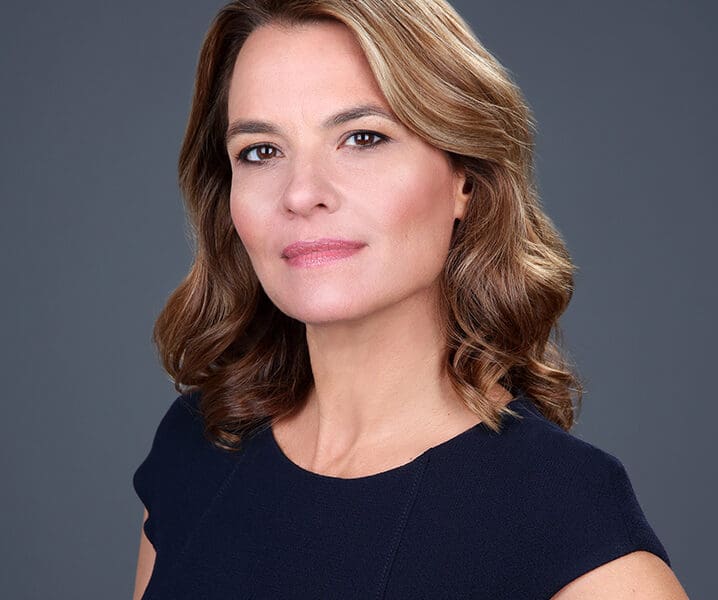
An interview with the filmmaker Joslyn Rose Lyons
Joslyn Rose Lyons has directed and produced a range of award winning film and television content, including work with HBO, BET, VH1, OWN, PBS, UNINTERRUPTED, Warner Bros., VICE, Complex, The Grammy Museum, Creative Artists Agency, and Sundance.
Joslyn Rose Lyons took the time to open up about her career and work as an indie filmmaker. Here’s what she had to say.
When did you first realize you wanted to be a filmmaker?
I knew from a young age that I wanted to tell stories. Make films. Stories have medicine in them. I have always wanted to be a vessel for stories to come through me.
What or who has most influenced your work? Other filmmakers, artists, musicians, etc.?
Ava DuVernay, she’s amazing. Spike Lee, I got to have dinner with him and his composer Terrance Blanchard at the Blue Note Jazz Club in New York, after working on a production for Showtime with him. I remember at the dinner he was scribbling notes on a napkin. I realized then that he never turns it off. His film Do the Right Thing is one of the sparks that ignited this journey in cinema for me. Jean-Pierre Jeunet, the use of magical realism in his film Amelie, has always been part of how I relate to the art of storytelling.
I had a chance once to ask him what would be the one piece of advice for filmmakers, and he said “use everything in your toolbox”, and then in music, it would be a long list, but definitely John Coltrane, 2PAC, Nina Simone . . . Authors I would say Paulo Coehlo. . . and visual artist James Turrell, his work with light is incredible.
This has been a challenging year for everyone. Can you tell me what it has been like for you writing and directing during this unprecedented time?
I directed a movie last month for Tajai and Hieroglyphics crew. I’ve directed for them before, music videos, shows, but this was by far the most unique opportunity to create with them. When Tajai first approached me about directing these films I knew it would be a challenge to create in an abstract Film Noir style: 26 vignettes, no dialogue, original set design, lighting-intensive days, and directing more than two dozen actors to tell these stories through series of black-and-white vignettes.

We did it all during pandemic. That was incredible. Everyone needed that light, and we played in the shadows to find it. I’ve also been working with my producers on the polishing phase of a script for my first feature film. It’s actually been quite a creative and focused time for this process. It’s also been a time of solitude.
My favorite author Paulo Coehlo (The Alchemist) said this about Solitude it may be too long to share it, but it’s such a good quote: “Without solitude, Love will not stay long by your side. Because Love needs to rest, so that it can journey through the heavens and reveal itself in other forms. Without solitude, no plant or animal can survive, no soil can remain productive, no child can learn about life, no artist can create, no work can grow and be transformed. Solitude is not the absence of Love, but its complement.
“Solitude is not the absence of company, but the moment when our soul is free to speak to us and help us decide what to do with our life. Therefore, blessed are those who do not fear solitude, who are not afraid of their own company, who are not always desperately looking for something to do, something to amuse themselves with, something to judge. If you are never alone, you cannot know yourself. And if you do not know yourself, you will begin to fear the void.”
Tell me about Looking Glass. How did you get the idea for the film, what was it like shooting it and how did it feel to be approached by Sundance Co//ab to participate in a virtual screening and panel discussion during Sundance London 2020?
Looking Glass stars Los Angeles based rapper/actor Jallal, and features an ensemble cast of artists from the Bay including DJ Umami, Ryan Nicole-Peters, and DJ Ambush, and embraces the struggle to overcome complacency, while visually embodying the spirit of Oakland’s creative community.
At the time of conceptualizing this piece, I had just finished reading a book called The Big Leap which explores the concept of taking that courageous leap from your ‘excellence zone’ to your ‘genius zone’ so this was a concept also present when I wrote the short. I am working on a script for a narrative feature with similar themes, so this was in some ways a proof of concept. I have always been fascinated by the idea of time. Looking Glass was in some ways my love letter to time.
Do you consider yourself an indie filmmaker and what would most be the most difficult thing about being an independent artist?
I definitely consider myself an indie filmmaker. One of the most difficult things about being an independent artist to me is that you often get discouraged by having to hear the word “no” more than “yes”. That’s where doubt can creep in. You can easily question your vision, your talent.
But you just have to keep believing in your vision, your calling. There’s a book The War of Art: Break Through the Blocks & Win Your Inner Creative Battles and I love this quote: “The more resistance you experience, the more important your un-manifested art/project/enterprise is to you – and the more gratification you will feel when you finally do it.” So you just have to keep pushing forward, especially when you encounter that resistance.

What genre of filmmaking do you like to work on?
I have a passion for exploring the creative process, music, and social justice, so I have always been drawn to documentary. One of my creative partners is former NBA Champ Matt Barnes, we produced a show for Uninterrupted (LeBron James digital Platform) called Same Energy, it features Marshawn Lynch and 2Chainz and explored in-depth conversations about mental, physical, and spiritual strength, and what it takes to stand for what you believe in.
I’m the impact producer on several music and social justice docs, including “Truth to Power” (Barbara Lee, Alexandria Ocasio-Cortez, Van Jones, Danny Glover, Corey Booker, Alice Walker). I produced a short doc with Common and his Imagine Justice organization, which is dedicated to empowering communities and fighting injustice. I also love scripted filmmaking, there is so much room to grow when we can bend the rules of the world in fiction.
What’s next for you? Anything new you’re working on that you can tell us about?
I am in the polishing stage with my producers on my script for my first narrative feature. It’s a drama, don’t want to give too much away, but it definitely has a strong presence of magical realism.
What kind of impact would your films have in the world and who is your audience?
Cinema can address real issues in a way that allows people to relate to a make-believe world, it’s less personal so we can connect without as much justice to the story or characters, while still digesting messages. The film has a way of opening up our senses and allowing us to see things in new ways. Some of my close friends in the Bay Area have made some incredible films this past few years that have done just that, Boots Riley made Sorry to Bother You Rafael Casal and Daveed Diggs made Blindspotting, these types of films can spark change by opening up conversations we might not have had.
Finding the extraordinary in the ordinary, and seeing things in a new light. I love this quote by 2PAC: “I’m not saying I’m gonna change the world, but I guarantee that I will spark the brain that will change the world.” That’s what I would want my films to do, create that spark that ignites an inner fire, and that fire can be a guiding light on your journey.
Creating visuals allows me to let my imagination run free like a wild horse, and in that process I find a sense of freedom. I think we are drawn to things that allow us to feel freedom. For me that’s what cinema does, it gives me a sense of freedom. It is a form of creative play, and when we are playing, that’s often when the most inspiring ideas can come. For me there has always been this feeling of freedom when I’m directing, because I can be myself in that space. Cinema allows me to play in my own shadows, and inspires me to keep searching for the light.







